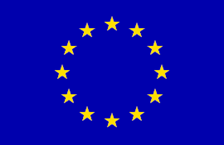Local Infrastructure Facility
| Status: | Ongoing |
| Duration: | 2018 - 2026 |
| Donors: | European Commission |
| Coverage: | Turkish Cypriot community areas |
| Beneficiaries: | Turkish Cypriot community and Greek Cypriot community |
| Focus Area: | Governance and Peacebuilding |
| Partners: | local communities |
| See more information about the project on the transparency portal. | |
Project summary
The Local Infrastructure Facility (here on LIF or the Facility) is funded by the European Union under the EU Aid Programme for the Turkish Cypriot community.
The aim of the Facility is to provide support and technical assistance for the design and implementation of projects which aim to improve environmental, social and economic infrastructure in the Turkish Cypriot community.
The projects implemented under LIF are selected through through a competitive process that ensures the best value for money while also supporting local communities through capacity-building initiatives. Additionally, LIF provides emergency support to the Turkish Cypriot community when needed.
The United Nations Development Programme (UNDP) manages LIF’s implementation, handling everything from feasibility studies and project design to procurement, construction, and oversight. This includes preparing tender documents, managing supply contracts, and supervising ongoing infrastructure projects.
 | Since 2018 approximately €38.88 million of European Union funds have been provided by the European Commission to implement the priorities of the Local Infrastructure Facility. |
LIF provides
Technical Assistance – Helping local communities assess their infrastructure needs and develop a list of priority projects ready for tender.
Infrastructure Development – Overseeing the actual construction and improvement of local facilities.
Works Supervision – Ensuring that all infrastructure work meets quality standards and is completed as planned.
Projects

 Locations
Locations





